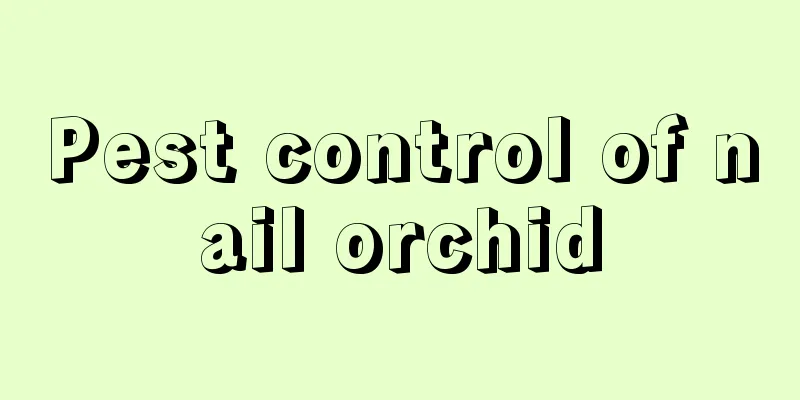Are roses easy to grow? Methods and precautions for growing roses at home

Are roses easy to grow?Roses are relatively easy to grow, but they are not suitable for indoor growth. If the indoor lighting conditions can be provided and the room is not closed for a long time, proper ventilation is also good for its growth. Since roses only breathe at night, they need to be moved out of the room to avoid excessive carbon dioxide concentration. For people who don't like their scent or are allergic to pollen, it is not suitable to place them indoors. Rose growth habits and characteristicsRoses are not afraid of frost. They are particularly cold-resistant plants that can withstand temperatures as low as minus 30 degrees Celsius. Therefore, they generally will not freeze to death in winter. In most areas of the south, they will not freeze to death, but in the north, they need to be properly managed to prevent frost. It is a sun-loving plant that likes full sunlight, preferably uniform light, especially in winter when it is suitable for exposure to full sunlight. If it is always grown in an environment without light, there will be problems with the growth of the plant. However, in summer, the sun is too strong and needs to be shaded in time. Note that fresh cut flowers need a semi-shaded environment, and potted flowers cannot be kept indoors all the time. Rose cultivation methods and key points1. Light requirements: Roses like sufficient sunlight and need an appropriate amount of direct sunlight to grow. The direct sunlight duration must reach at least 6 hours. 2. Soil requirements: Roses prefer neutral or slightly alkaline soil, and can also be planted in slightly acidic soil. They do not have high requirements for soil fertility and can grow well in loose and breathable soil with a certain amount of humus. 3. Water requirements: Roses are drought-resistant but not waterlogged. Watering should be done after the soil is dry. Do not water when the temperature is below 0℃. If the potted plants are moved indoors for wintering, water them at noon. 4. Temperature requirements: The suitable growth temperature for roses is 12 to 28°C. Roses can differentiate flower buds in an environment above 7°C. The longer the high temperature time after bud formation, the earlier the flowering. It is not suitable to be maintained in a hot environment during the flowering period. When the temperature is higher than 35°C in summer, the plant will go dormant and the temperature should be lowered appropriately. 5. Fertilization method: Late spring and early summer are the flowering seasons for roses. Fertilize frequently, once every 15 to 20 days. If you use water-soluble solid fertilizer, you can water it thoroughly in time after fertilizing. Rose cultivation precautions1. Pruning: Prune appropriately after the flowering period. If you do not need to produce fruits or retain seeds, you can cut off the withered flowers. Prune appropriately during the summer dormancy period to prevent excessive growth. 2. Pest and disease control: Common rose pests and diseases are rust, brown spot, branch dieback, aphids, red spiders and longhorn beetles, etc., which must be prevented in time. For diseases caused by bacteria, spray the rose with chlorothalonil solution in advance for prevention. |
<<: Can roses be grown hydroponically?
>>: Can Chlorophytum comosum be hydroponically cultivated?
Recommend
How to change the soil and pot of orchids
Time to change the soil and pot of orchids Orchid...
How to make the leaves of Tiger Piranha greener and what to do if the tips of the leaves turn yellow
1. How to make the leaves of Tiger Pilan greener ...
What is the best fertilizer for peach eggs?
Peach egg fertilization time Peach eggs need to b...
These 4 kinds of flowers are the most "wasteful". They can eat up 5 kilograms of soil a year, and the fat ones are too fat to be kept!
If you grow a pot of spider plant, it can eat 5 k...
What to do if the Phalaenopsis flower stem is broken
1. Solution Don't worry too much if the flowe...
Syngonium cultivation methods and precautions
1. Adequate astigmatism Syngonium is suitable for...
How to graft rat tail palm
Grafting period The best time for grafting is bet...
What to do if the leaves of the ball orchid turn yellow
1. Replace the flower pot: Reason: If the flowerp...
Can tiger lily be exposed to the sun?
1. Can I sunbathe? Of course, Sansevieria can be ...
What are the methods and precautions for raising little angels?
How to breed little angels Little Angel, also kno...
How to make azalea take root quickly by cuttings
Rhododendrons are highly ornamental and are usual...
How to propagate pine red plum by cuttings
Time for cuttings The main method of propagation ...
How to grow a small potted fortune tree
1. Choose a pot When caring for the plant, you ca...
How to grow green radish hydroponically to make it grow more vigorously?
Pothos has become a popular indoor plant because ...
Cultivation method of bamboo leaf pepper
1. Basic Introduction Zanthoxylum bungeanum is al...









